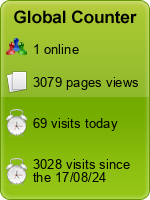The influence of telehealth-based interventions in patients with cancer in the digital era of society 5.0: A literature review
DOI:
https://doi.org/10.33024/minh.v7i8.639Keywords:
Cancer, Digital, Remote, TelehealthAbstract
Background: Cancer is a group of diseases characterized by the uncontrolled growth and spread of abnormal cells, which can result in death if not managed. It is important for cancer patients to be able to participate in long-term treatment programs. Therefore, a good support system, healthcare professionals' support, and the utilization of information technology in healthcare services are needed. The management of cancer is also expected to adapt to the era of Society 5.0. The use of Telehealth has been recommended by the World Health Organization (WHO) to support current healthcare services. The implementation of the combination of telehealth is expected to be a solution for holistic cancer care in the digital era.
Purpose: To explore the effectiveness of telehealth-based interventions on cancer patients in the digital era of society 5.0.
Method: Literature review using online databases such as Sage Journals, Science Direct, Clinical Key Nursing, and PubMed. Inclusion criteria: articles on the application of telehealth for cancer patients, available in full text in English, published between 2020-2023. Exclusion criteria: articles published before 2020, articles that do not discuss telehealth in cancer patients, and literature review studies.
Results: Analysis of the 13 articles used shows the important role of combining telehealth (telenursing, telepalliative, telerehabilitation, teleoncology), which is beneficial not only for cancer patients but also for nurses and other healthcare professionals in providing good quality, safe, effective, and efficient healthcare services in the digital era of society 5.0.
Conclusion: Telehealth-based cancer rehabilitation demonstrates a positive impact that warrants further evaluation and study.
References
Abdigaravand, M., Goudarzi, F., Hasanvand, S., Birjandi, M., Galehdar, N., & Hojati, Z. (2023). The effect of education and telephone follow-up on the burden of family caregivers of patients with cancer. SAGE Open Nursing, 9, 23779608231170444.
Algarni, F. S., Alshammari, M. O., Sidimohammad, U., Khayat, S. A., Aljabbary, A., & Altowaijri, A. M. (2022). Tele-Rehabilitation Service from the Patient's Perspective: A Cross-Sectional Study. Journal of Patient Experience, 9, 23743735221130820.
Andriani, L., Oh, J., McMinn, E., Gleason, E., Koelper, N. C., Chittams, J., & Ko, E. M. (2023). Telehealth utilization in gynecologic oncology clinical trials. Gynecologic Oncology, 177, 103-108.
Banerjee, S. C., Staley, J. M., Howell, F., Malling, C., Moreno, A., Kotsen, C., & Parker, P. A. (2021). Communicating effectively via tele-oncology (Comskil TeleOnc): a guide for best practices for communication skills in virtual cancer care. Journal of Cancer Education, 1-6.
Bektas, H., Coskun, H. S., Arikan, F., Ozcan, K., Tekeli, A., Kondak, Y., & Kalav, S. (2022). Development and evaluation of the efficacy of a web-based education program among cancer patients undergoing treatment with systemic chemotherapy: a randomized controlled trial. Supportive Care in Cancer, 30(7), 6021-6033.
Bimczok, D., Smythies, L. E., Waites, K. B., Grams, J. M., Stahl, R. D., Mannon, P. J., & Smith, P. D. (2013). Helicobacter pylori infection inhibits phagocyte clearance of apoptotic gastric epithelial cells. The Journal of Immunology, 190(12), 6626-6634.
Blanco T. L., Cerdán S. C., García S. J., Maqueda G. R., Lopesino G. J. M., Correa B. A., & Martín P. E. (2022). Patients’ perceived satisfaction through telephone-assisted tele-consultation during the SARS-CoV-2 pandemic period: observational single-centre study at a tertiary-referral colorectal surgery department. Surgical Innovation, 29(1), 35-43.
Calvetti, L., Tealdo, M., Simionato, F., Pagiusco, G., Cimenton, R., Gasparin, B., & Aprile, G. (2022). Home-based management of patients with cancer experiencing treatment-induced toxicities with a nurse-led telephone triage (the NTT study). JCO Oncology Practice, 18(1), e20-e27.
Ebrahimabadi, M., Rafiei, F., & Nejat, N. (2021). Can tele-nursing affect the supportive care needs of patients with cancer undergoing chemotherapy? A randomized controlled trial follow-up study. Supportive care in cancer, 29, 5865-5872.
Elk, R., Emanuel, L., Hauser, J., Bakitas, M., & Levkoff, S. (2020). Developing and testing the feasibility of a culturally based tele-palliative care consult based on the cultural values and preferences of southern, rural African American and White community members: a program by and for the community. Health Equity, 4(1), 52-83.
Ester, M., McNeely, M. L., McDonough, M. H., & Culos-Reed, S. N. (2021). A survey of technology literacy and use in cancer survivors from the Alberta Cancer Exercise program. Digital Health, 7, 20552076211033426.
Kamei, T. (2022). Telenursing and artificial intelligence for oncology nursing. Asia-Pacific journal of oncology nursing, 9(12).
Kaye, R., Rosen Z. M., & Ron, R. (2020). Digitally-enabled remote care for cancer patients: here to stay. In Seminars in oncology nursing (Vol. 36, No. 6, p. 151091). WB Saunders.
Kizilkaya, M. C., Kilic, S., Dagistanli, S., Eren, M. F., Basaran, C., Ohri, N., & Sayan, M. (2023). Effectiveness of a telehealth patient education intervention for breast cancer awareness and screening uptake among Afghan refugee women: a cross-sectional survey and feasibility study. EClinicalMedicine, 62.
Li, J., Liu, Y., Jiang, J., Peng, X., & Hu, X. (2021). Effect of telehealth interventions on quality of life in cancer survivors: a systematic review and meta-analysis of randomized controlled trials. International Journal of Nursing Studies, 122, 103970.
Majérus, M. A. (2022). The cause of cancer: The unifying theory. Advances in Cancer Biology-Metastasis, 4, 100034.
Mishra, V., & Sharma, M. G. (2022). Digital transformation evaluation of telehealth using convergence, maturity, and adoption. Health Policy and Technology, 11(4), 100684.
Rosa, W. E., Lynch, K. A., Hadler, R. A., Mahoney, C., & Parker, P. A. (2023). “It took away and stripped a part of myself”: Clinician distress and recommendations for future telepalliative care delivery in the cancer context. American Journal of Hospice and Palliative Medicine®, 40(2), 235-243.
Sato, D. (2020). Effectiveness of telenursing for postoperative complications in patients with prostate cancer. Asia-Pacific Journal of Oncology Nursing, 7(4), 396-403.
Sung, H., Ferlay, J., Siegel, R. L., Laversanne, M., Soerjomataram, I., Jemal, A., & Bray, F. (2021). Global cancer statistics 2020: GLOBOCAN estimates of incidence and mortality worldwide for 36 cancers in 185 countries. CA: a cancer journal for clinicians, 71(3), 209-249.
Wolf, A. M., Oeffinger, K. C., Shih, T. Y. C., Walter, L. C., Church, T. R., Fontham, E. T., & Smith, R. A. (2024). Screening for lung cancer: 2023 guideline update from the American Cancer Society. CA: A Cancer Journal for Clinicians, 74(1), 50-81.
Downloads
Published
How to Cite
Issue
Section
License
Copyright (c) 2024 Malahayati International Journal of Nursing and Health Science

This work is licensed under a Creative Commons Attribution-ShareAlike 4.0 International License.









